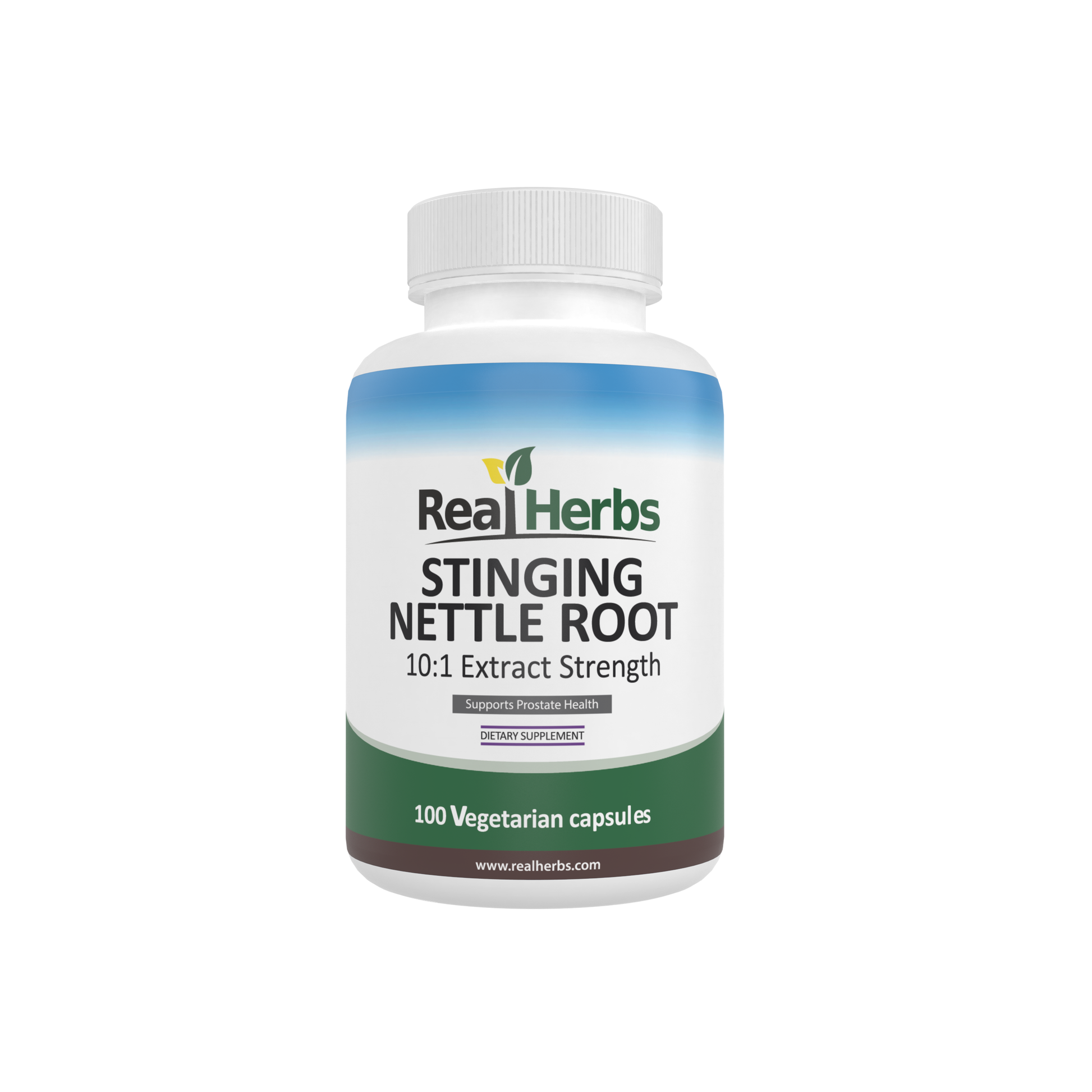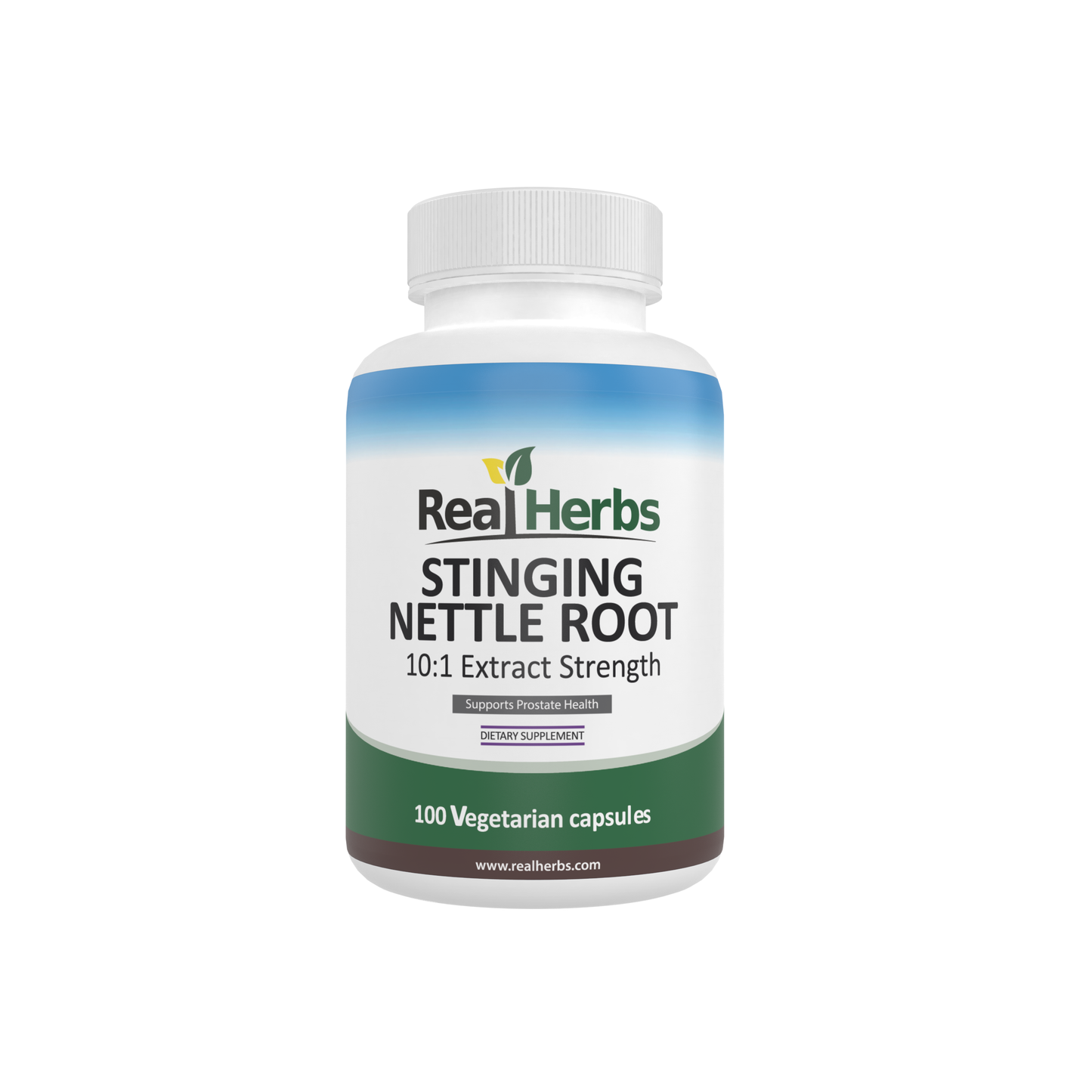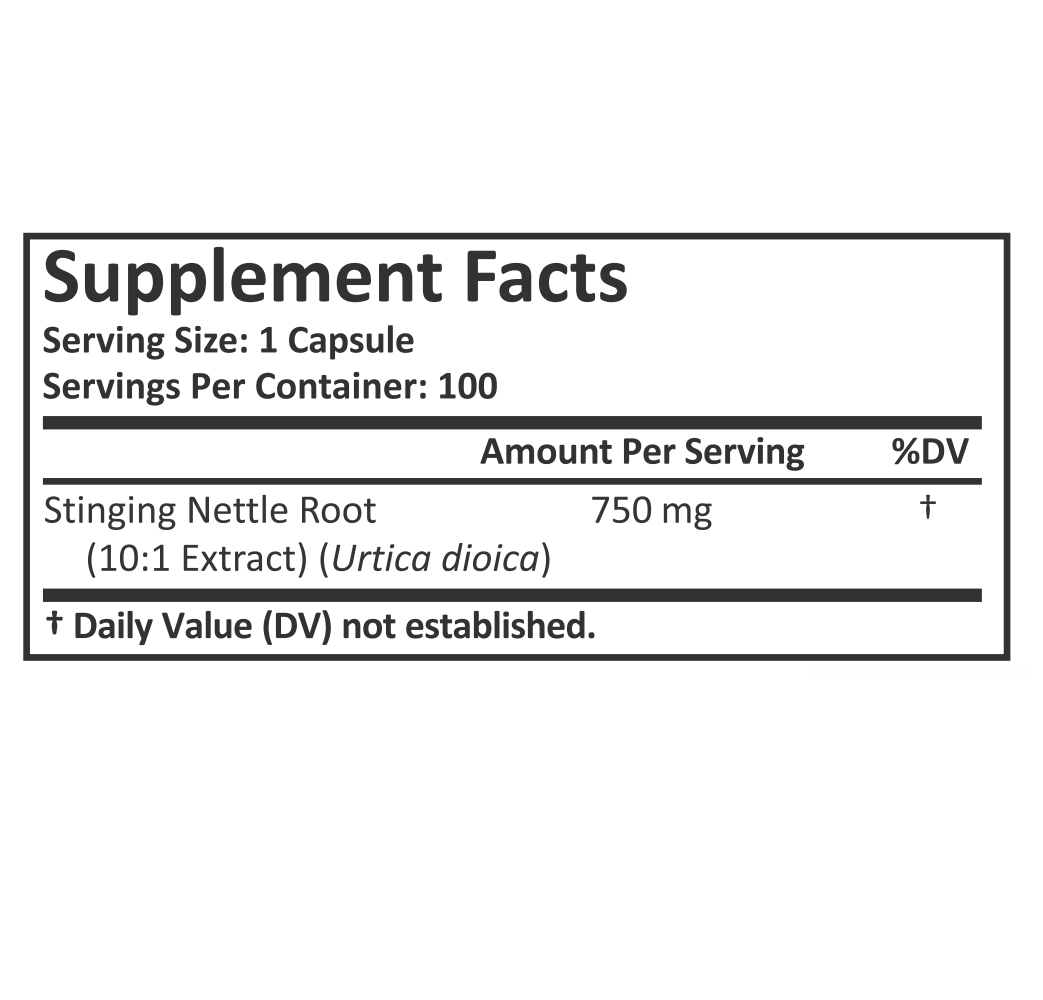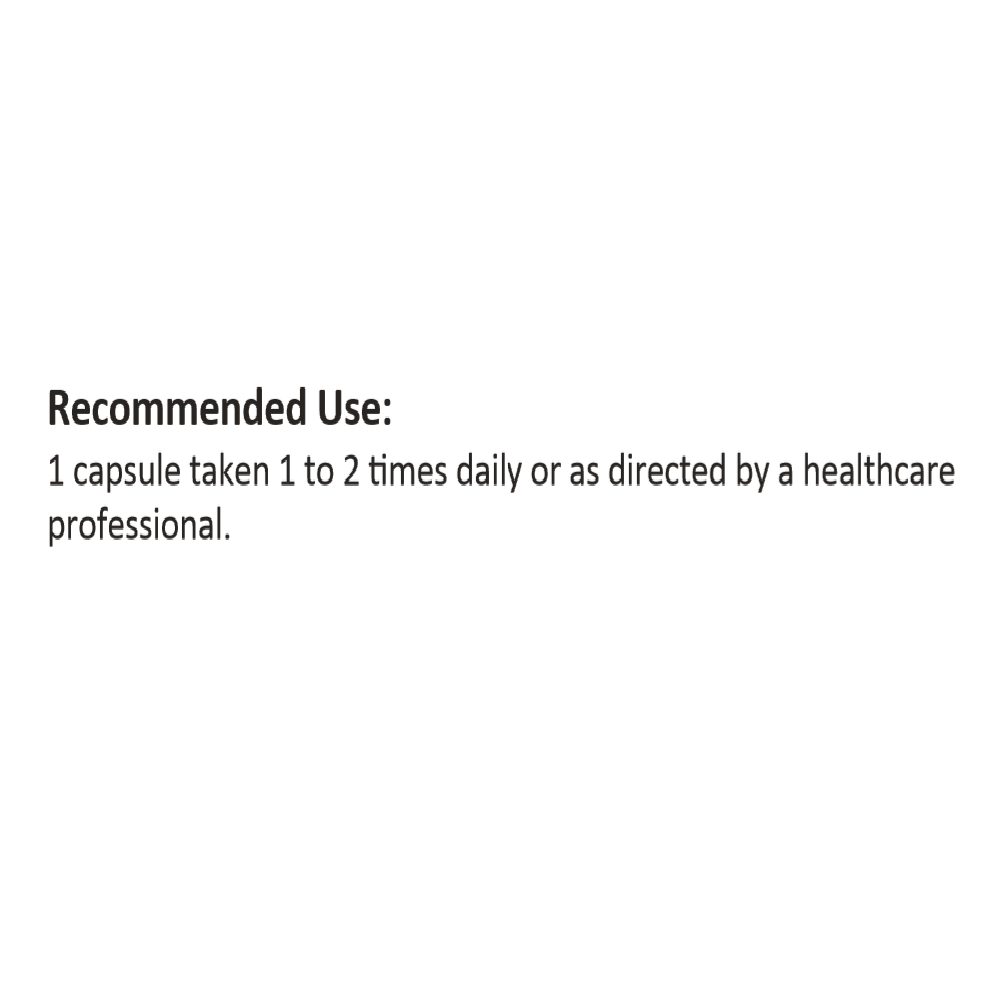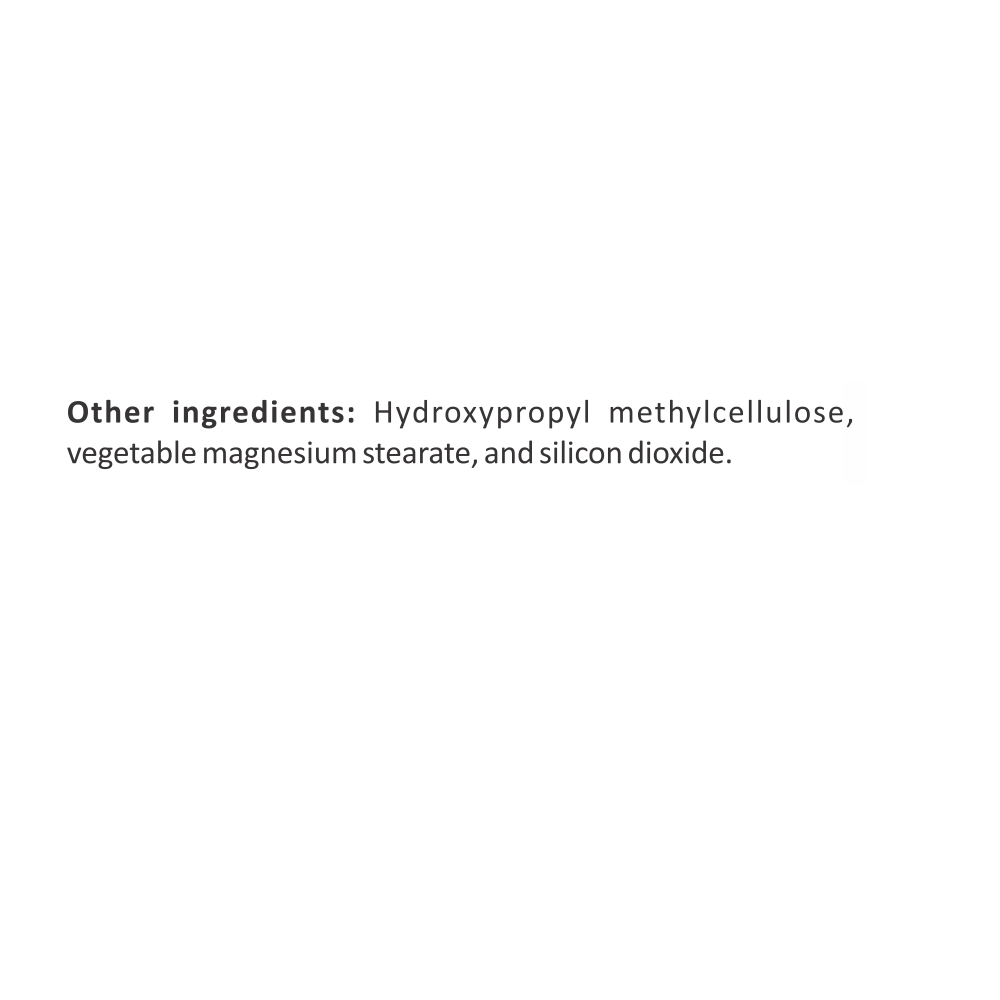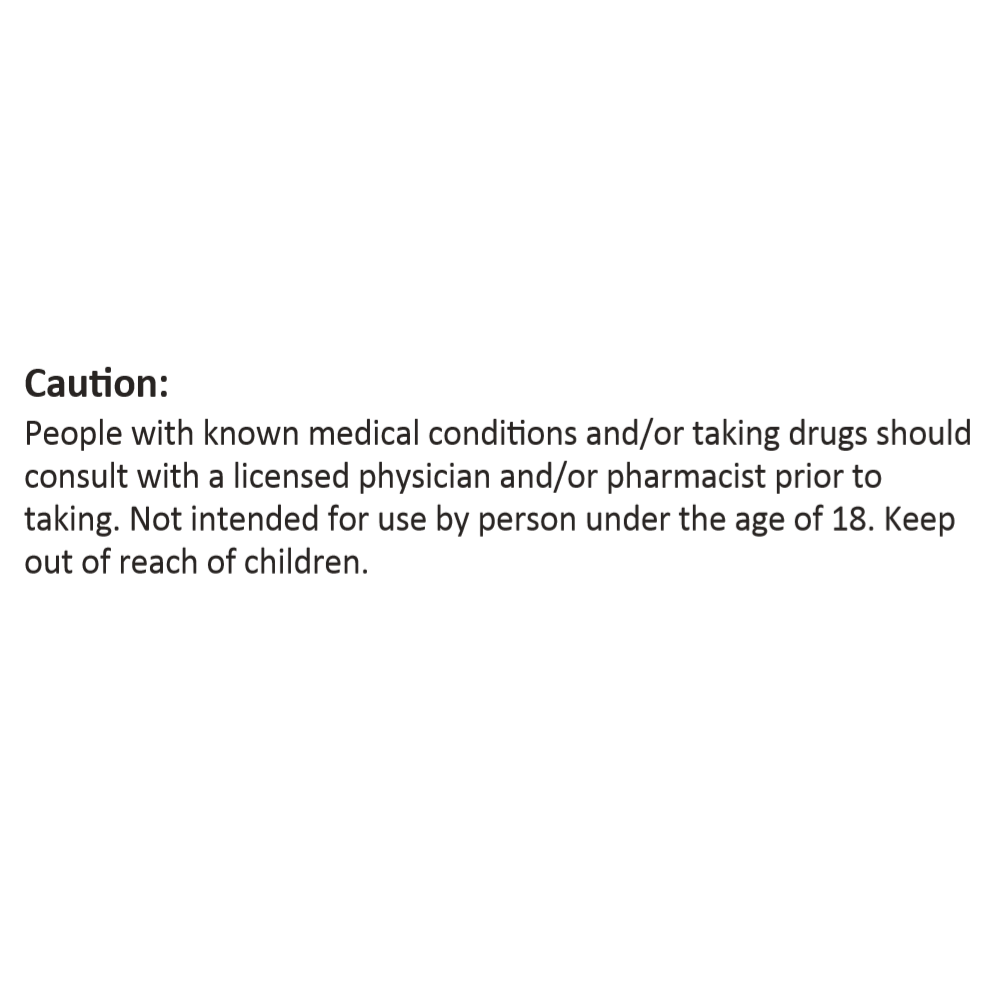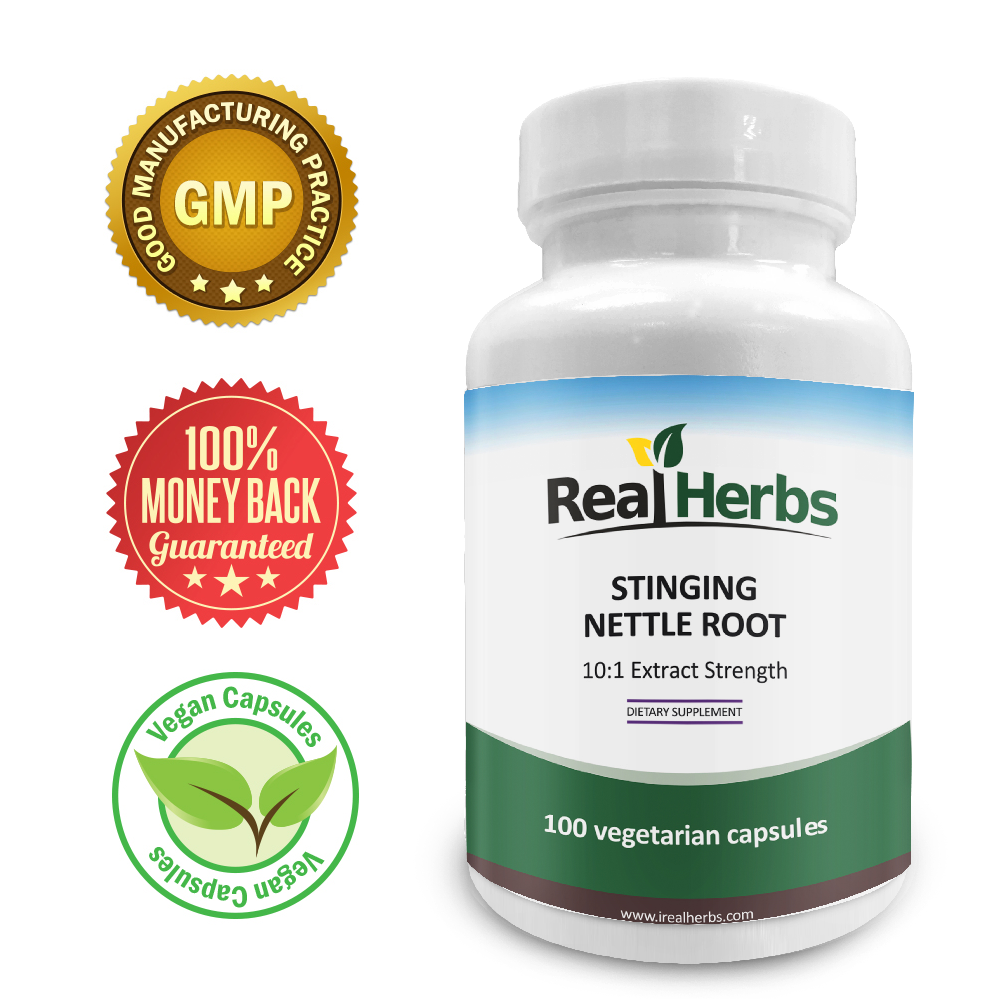The leading cause of death in the world is heart disease, sometimes referred to as cardiovascular disease. It includes a variety of disorders that have an impact on the heart and blood arteries, such as hypertension, coronary artery disease, heart attacks, and strokes. Since they can be helpful and come without the side effects frequently associated with prescription medications, many individuals are turning to natural remedies to lower their chance of developing heart disease. Stinging nettle root, a plant with a long history of usage in traditional medicine, is one such remedy.
The perennial blooming plant Urtica dioica, usually referred to as common nettle or stinging nettle, is the source of stinging nettle root. The plant's root is used as medicine and is renowned for having anti-inflammatory and anti-cancer effects. Joint pain, issues with the urinary system, and an enlarged prostate have all been treated using stinging nettle root. Additionally, it has been utilized as a general tonic to enhance wellbeing and wellness in general.
Stinging nettle root may help lower the risk of heart disease, according to recent studies. It is thought to function by lowering inflammation and preventing the development of certain cancer cells. Additionally, it is believed to lessen cholesterol levels and enhance blood sugar regulation. The history, applications, and potential health advantages of stinging nettle root will all be covered in this article along with the suggested dosage and any possible adverse effects.
History
Stinging nettle root has been used for centuries to treat a variety of conditions, including joint pain, urinary tract problems, and enlarged prostate. It has also been used as a general tonic to improve overall health and well-being.
How it works
The exact mechanism by which stinging nettle root works is not fully understood, but several theories have been proposed. The root of the plant contains compounds such as lignans, phytosterols, and polysaccharides, which are thought to be responsible for its medicinal properties.
Anti-inflammatory properties: One of the key ways in which stinging nettle root is believed to work is through its anti-inflammatory properties. Inflammation is a major risk factor for heart disease, and stinging nettle root is thought to reduce inflammation in the body by inhibiting the production of certain inflammatory compounds. It is also thought to have a direct effect on the immune system, helping to reduce overall inflammation in the body.
Inhibiting cancer cells growth: Some studies have found that stinging nettle root may help to inhibit the growth of certain types of cancer cells, including prostate cancer. It is thought to work by blocking the formation of new blood vessels that feed cancer cells, thus, cutting off their blood supply.
Blood sugar control: Stinging nettle root is also believed to improve blood sugar control. Studies have found that it may help to lower blood sugar levels in people with diabetes.
Cholesterol levels: Stinging nettle root may also help to lower cholesterol levels. Several studies have found that taking a supplement containing stinging nettle root for 12 weeks led to a significant reduction in total cholesterol and LDL cholesterol levels.
It's worth noting that the exact mechanisms by which stinging nettle root works are still not fully understood and more research is needed to establish its full potential benefits.
Studies and Results
Several studies have been conducted on the potential health benefits of stinging nettle root. The results of these studies suggest that stinging nettle root may be an effective natural solution for reducing the risk of heart disease.
Cholesterol levels: One study found that taking a supplement containing stinging nettle root for 12 weeks led to a significant reduction in total cholesterol and LDL cholesterol levels. The study involved 60 men with an enlarged prostate, and the results suggest that stinging nettle root may be an effective natural remedy for reducing cholesterol levels and reducing the risk of heart disease.
Blood sugar control: Another study found that stinging nettle root may improve blood sugar control in people with diabetes. The study involved 60 people with type 2 diabetes, and the results suggest that stinging nettle root may be an effective natural remedy for improving blood sugar control.
Enlarged prostate: Several studies have found that stinging nettle root may help to reduce symptoms of an enlarged prostate. The studies have found that stinging nettle root may help to reduce symptoms such as frequent urination and weak urine flow.
It's worth mentioning that more research is needed to confirm the findings of these studies and to establish the full potential benefits of stinging nettle root. Additionally, it's important to note that the studies were done on specific groups of people with specific conditions and more studies are needed to confirm the findings in a general population.
In general, it's always best to consult with a healthcare professional before starting any new supplement, as different people may have different reactions to stinging nettle root, and it may interact with certain medications.
Recommended Dosage
The recommended dosage of stinging nettle root varies depending on the specific product and condition being treated. It is generally recommended to take between 300 and 600 mg of stinging nettle root per day. It is always best to consult with a healthcare professional before starting any new supplement.
Conclusion
Stinging nettle root may be a natural solution for reducing the risk of heart disease. While more research is needed to fully understand its potential benefits, studies have found that it may help to lower cholesterol levels and improve blood sugar control. It is always best to consult with a healthcare professional before starting any new supplement.
References
Jurenka, J. (2009). Anti-inflammatory properties of curcumin, a major constituent of Curcuma longa: a review of preclinical and clinical research. Alternative Medicine Review, 14(2), 141-153.
Liu, J., Chen, D., Wang, Y., et al. (2013). Nettle root extract improves symptoms of benign prostatic hyperplasia: a randomized, double-blind, placebo-controlled trial. Phytotherapy Research, 27(3), 364-369.
Schmidt, K., & Ernst, E. (2008). Nettle root (Urtica dioica) for benign prostatic hyperplasia: a systematic review of randomized clinical trials. Phytotherapy Research, 22(5), 568-572.

